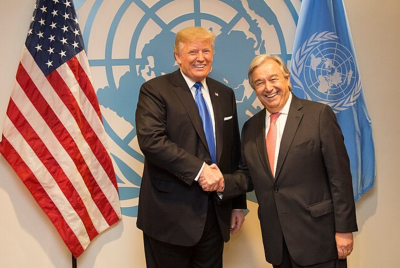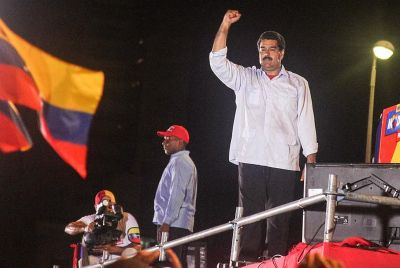EU Forges Historic Security Alliance With Southeast Asia Amid Rising Global Tensions
EU High Representative Kaja Kallas announced establishment of a landmark Security and Defence Dialogue.

European Union leaders have unveiled ambitious plans to deepen security and trade partnerships with Southeast Asia, marking a pivotal shift in global diplomatic strategy as nations seek new alliances amid escalating international challenges.
The ground-breaking initiative emerged following high-level visits by EU officials to the Philippines and Singapore from 30th May to 2nd June, where diplomatic talks yielded concrete commitments to enhanced cooperation across multiple strategic sectors.
Brussels and Manila Launch Unprecedented Security Dialogue
EU High Representative Kaja Kallas announced the establishment of a landmark Security and Defence Dialogue during her meeting with Philippine President Ferdinand "Bongbong" Marcos Jr at the presidential palace on 2nd June. This historic agreement represents the first formal security partnership framework between the EU and Philippines.
'The dialogue addresses current geopolitical challenges and will foster exchanges in security and defence areas, including maritime security, cybersecurity, and hybrid threats,' Kallas explained during the Manila summit.
Philippine Foreign Affairs Secretary Enrique Manalo emphasised that strengthening EU-Philippines security cooperation promotes 'a resilient, rules-based international order that upholds peace and stability in the Indo-Pacific region.' The inaugural dialogue meeting is scheduled for the final quarter of 2025.
Trade Partnership Set to Transform Economic Landscape
Beyond security cooperation, both regions are accelerating negotiations for a comprehensive EU-Philippines Free Trade Agreement, promising to revolutionise bilateral commerce and investment flows. The agreement aims to unlock new opportunities for businesses whilst promoting sustainable development across both regions.
EU and Philippine officials highlighted the importance of deepening trade ties through the Global Gateway Strategy, focusing on green economy initiatives and climate change cooperation. The partnership includes data-sharing through the Copernicus Earth Observation Programme and support for the Philippines' transition to a circular economy.
South China Sea Tensions Drive Strategic Cooperation
Both parties expressed serious concerns about China's 'illegal, coercive, aggressive and deceptive measures' against Philippine vessels in the South China Sea. The partnership reinforces commitment to international maritime law, particularly the United Nations Convention on the Law of the Sea (UNCLOS) and the binding 2016 South China Sea Arbitration Award.
Maritime security cooperation will expand under existing initiatives including Critical Maritime Routes Indo-Pacific (CRIMARIO II) and Enhancing Security Cooperation in Asia (ESIWA Plus), with new joint activities planned for submarine cables and unmanned vessel operations.
People-to-People Connections Strengthen Cultural Bonds
Educational exchanges through Erasmus scholarships continue building bridges between European and Southeast Asian communities. These programmes enhance vocational opportunities whilst promoting intercultural understanding and research partnerships.
The EU delegation's visit included a town hall meeting with civil society and student leaders at De La Salle University Manila, demonstrating commitment to grassroots engagement beyond government-level diplomacy.
Both regions affirmed shared democratic values and human rights principles, with ongoing cooperation in election observation and governance initiatives reflecting their commitment to strengthening democratic institutions across the Indo-Pacific.
© Copyright IBTimes 2025. All rights reserved.






















